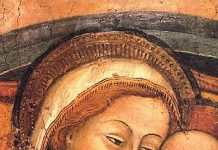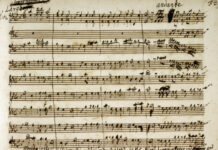(What follows is an exchange with a faithful reader, having his own qualms about ‘virtual’ Masses – I thought our dialogue, slightly adapted, might help others. The reader’s questions are in italics, and my own replies, such as they are, follow. Editor)
I read your recent Catholic Insight essay on virtual Masses. Couldn’t agree more! I haven’t watched one since last April and won’t ever again. Christians have no idea what it is like to suffer for their faith — the Church (institution) folded without a fight.
But, I am disturbed by the notion of the sacraments working ex opere operato. Seen in the best way, this means that that the sacraments have power to bless because it is God who is acting. But the perversion of this is a notion I’ve come across and which I suspect has been behind the lightning quick shut-down of Masses — as long as the clergy say the Mass, Christ’s work continues to work. No masses needed for the Masses! Am I completely wrong in this?
Your question is very a propos. There is truth in the claim that is made, that it is better for the Mass to be said at all, even in private by a priest alone, which brings many graces down upon the world, ex opere operato (from the ‘work having been worked’, or from the very sacrament itself being performed). What we have now is better than a total proscription and cessation of the Mass.
But we should not discount or minimize the ex opere operantis aspect of the Mass, which cannot be dissociated or separated from the ex opere operato (from which it derives). Each Mass is more efficacious for us when we are physically, bodily present at the Mass, and the more we participate ‘body and soul’, with all of our being, the better. Hence, the need for solid homilies, transcendent music and architecture, holy priests and so on.
Hence, we should not get too comfortable with the way things are. It is not enough for Mass just to be ‘said by the priest’. Although God can provide for what is lacking, we must admit that things are still lacking, grace less ‘operative’. People will begin to drift away, even interiorly, and already have.
I too stopped watching on-line Masses almost from the get-go, as I implied in the article. Far better, from my perspective, to participate some other way, more incarnational and real.
I have a follow-up question: is that notion that it is better for the Mass to be said at all, even in private by a priest alone dogmatic Truth? Or is this simply a doctrinal implication? I will confess that, being someone who starts with Scripture in thinking through God’s interactions with humans, the sacrifice in the Tabernacle or Temple would have been null and void without the bringer of the sacrifice. He demands the participation of supplicants. The priests alone — in their intermediary status — did not suffice. And so I have some deep reservations about the efficacy of the Mass without any worshippers other than the priest, who is at critical moments in the liturgy acting in persona Christi.
To clarify, a priest saying Mass is, at one level, a more powerful example of anyone praying ‘in secret’, which would have spiritual effectiveness. When a priest, monk or nun recites the Divine Office, whether alone or in community, they are praying for the whole world.
This is even more powerful when a priest says Mass, for it is not he who is offering the sacrifice, but Christ, for the priest prays in persona Christi capitis, in the person of Christ the Head. Hence, every Mass, regardless of how ‘private’, is Christ Himself, not only interceding for us, but offering Himself for us, in his eternal sacrifice.
This is a deep mystery, which we accept on Faith, and upon whose truth we might meditate for a lifetime. Which is what we do, each time we participate in Mass, even from a distance.
That all said, I do hold the point about the greater efficacy of Mass quoad nos – in reference to us – when we participate personally and incarnationally. This is a bit of a spectrum, as someone might be ‘there’, but ‘not there’, in spirit; while someone else, may be more ‘there’, even though somewhat removed.
But all are in some way present at every Mass, for Christ, through His priest, includes all men in the offering of the Mass.
I hope this helps.
Indeed, it has been a difficult year here, and we know not what next year might yet hold. We must trust, and hope that God’s will is perfectly done, in all its joys and sorrows.











